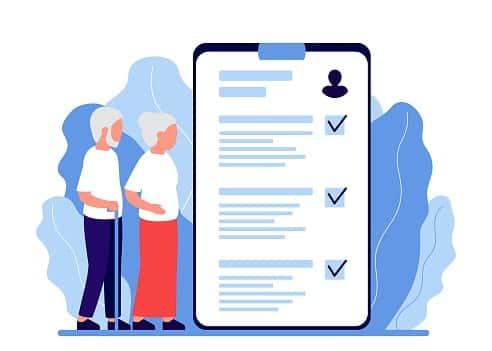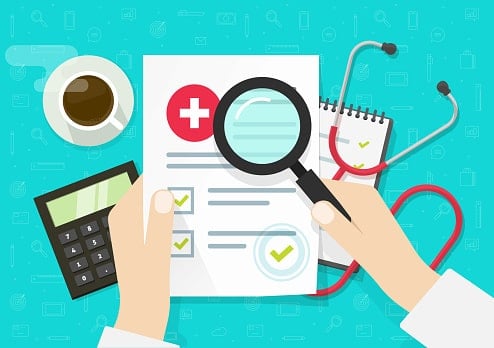Does health insurance cover ER visits?
Your health insurance will cover you for a trip to the emergency room, whether that hospital is in or out of network.
However, emergency room visits are subject to copays, coinsurance, and deductibles depending on your policy. Although network doesn’t matter for emergency care, if you are admitted to an out-of-network hospital you may have to pay higher coinsurance amounts.
Why did I get a bill for an emergency room visit?
Health insurance has to cover your emergency room care, but there are two occasions when you may receive a larger than expected hospital bill:
- An out-of-network provider cares for you during a hospital visit or stay.
- Your insurer deems your issue wasn’t an emergency and you should have sought care at a more appropriate care location, such as a doctor’s office or retail clinic.
Health insurance companies have contracts with hospitals and providers. Health plans generally approve emergency room claims, but a doctor or technician might not be within your health plan’s network. In that case, you might get a larger than expected bill if one of the professionals who cared for you is out-of-network.
The other occasion when you might receive a larger bill is if you go to the emergency room for non-emergency care. Some insurers nudge members to get lower-cost care rather than go to an emergency room unless it’s an actual emergency. This will save you money on coinsurance as well.
Those lower-cost care locations include a primary care provider’s office, an urgent care center or a health clinic. Insurers want members to get care at those locations for non-emergencies. Doing so not only reduces health costs for health plans but minimizes the chance of overcrowded emergency rooms.
Health insurers may reject a claim for an emergency room visit that it deems unnecessary. It's uncommon, but it does happen. If that's the case, you will need to appeal.
What to do if you get a surprise emergency room bill
If you get a bill you didn't expect from an ER visit, there are a few steps to take.
- Check your hospital bill for any unexpected charges. If you find you’re getting charged out-of-network for part of the care, you can appeal it to your insurer. You’ll want to explain the situation and provide information about the visit. Usually, health plans allow two internal appeals and one external appeal of a surprise medical bill.
- Call the hospital. You can ask the hospital if it will accept a reduced payment, such as the Medicare rate, which is lower than what private insurers usually pay. Hospitals also often offer financial assistance and payment plans.
- Check with your insurer. Request that it negotiate a lower rate with the hospital for your charges. You can also appeal the surprise bill to the insurer.
If you’re still not getting any help, contact your state’s insurance department. The state may work with the hospital and insurer to lower the price or review an insurer’s rejected appeal.
You can also check out the National Patient Advocate Foundation, which offers help on its site on appealing surprise medical bills, including template appeal letters.
Health insurance finder tool

COBRA
Learn more about COBRA
How much is your annual household income?
How many members are in your household?
Medicare
Medicare costs vary depending on which option you choose.
Learn more about Medicare costs.
Medicaid

Parent's employer-sponsored health insurance

Spouse's employer-sponsored health insurance

Employer-sponsored health insurance

Preferred-provider Organization (PPOs)
Preferred-provider organization (PPOs) plans are the most common type of
employer-based health plan. PPOs have higher premiums than HMOs and HDHPs, but
those added costs offer you flexibility. A PPO allows you to get care anywhere
and without primary care provider referrals. You may have to pay more to get
out-of-network care, but a PPO will pick up a portion of the costs.
Find out more about the differences between plansHealth maintenance organization (HMO)
Health maintenance organization (HMO) plans have lower premiums than PPOs.
However, HMOs have more restrictions. HMOs don't allow you to get care outside
of your provider network. If you get out-of-network care, you'll likely have to
pay for all of it. HMOs also require you to get primary care provider referrals
to see specialists.
Find out more about the differences between plansHigh-deductible health plans (HDHPs)
High-deductible health plans (HDHPs) have become more common as employers look
to reduce their health costs. HDHPs have lower premiums than PPOs and HMOs, but
much higher deductibles. A deductible is what you have to pay for health care
services before your health plan chips in money. Once you reach your deductible,
the health plan pays a portion and you pay your share, which is called
coinsurance.
Find out more about the differences between plansExclusive provider organization (EPO)
Exclusive provider organization (EPO) plans offer the flexibility of a PPO with
the restricted network found in an HMO. EPOs don't require that members get a
referral to see a specialist. In that way, it's similar to a PPO. However, an
EPO requires in-network care, which is like an HMO.
Find out more about the differences between plans
Learn more about individual insurance plans
Can you buy emergency health insurance?
There’s really no such thing as emergency-only health insurance. It’s a common misconception that catastrophic health insurance plans are emergency health insurance, but they actually cover all of the same things as any other plan. They just have higher out-of-pocket costs.
Also, regardless of whether you have health insurance, emergency departments must treat you if it’s an emergency. You may wind up with a hefty hospital bill if you visit an emergency room without insurance, but they must care for you in an emergency.












